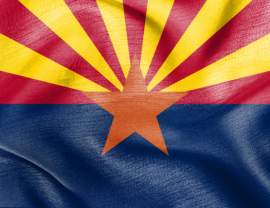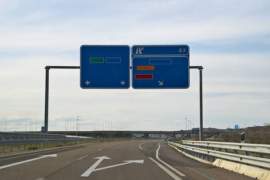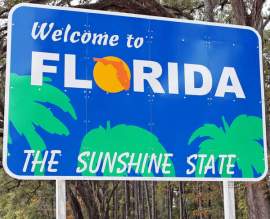
Understanding Parking Tickets

What are Parking Violations?
Parking violations are illegal acts that involve parking a motor vehicle in a restricted place or in an unauthorized manner. Parking violations are universal in nature. For instance, it is against the law in every jurisdiction to park a motor vehicle in the middle of a road or highway. However, the laws surrounding parking violations and the explicit restrictions attached to parking will be implemented on a local level. Every town in the United States implements their own laws with regards to parking violations.
Individuals caught committing a parking violation will be penalized through a parking ticket. Parking tickets are administered by local police departments. They are attached with fines, which fluctuate based on the severity of the parking violation. Failure to pay parking violations will result in added penalties and a possible suspension of a driver’s license.
Parking laws are enforced by jurisdictions to promote safe parking habits. Parking violations, although deemed minor in nature, can affect the flow of a town, or simply ruing one’s day. Parking tickets are a means to harmonize traffic laws. The creation of restricted spots, for instance, ensures that crucial pathways, such as railroad crossings, pedestrian walkways and fire hydrant zones, are clear. Laws prohibiting double parking or parking in the middle of street aim to avoid bottlenecks or congestion from forming on our roads. These laws therefore promote convenience, safety and unimpeded travel.
Another means for the creation of parking violations is to fund a jurisdiction. Parking spaces are public property; they are owned by the government of the acting government. Because of this, a local government has the right to charge a motorist for parking in a public space on a public street. Parking meters are used to collect funds from motorists using these spaces. As stated above, failure to abide by a jurisdiction’s parking laws will result in the administration of a parking ticket. The penalties attached to the ticket are collected by the local government to provide public services for the community.
Common Examples of Parking Violations:
Common parking violations will include, but are not limited to:
• Parking a motor vehicle in a restricted space, such as a bus stop, handicapped spot (without a handicapped sticker), in front of a driveway or prohibited space, or in front of a fire hydrant. These parking violations are universal; laws are applied to curb these violations throughout the country.
• Parking on a sidewalk is typically deemed illegal; however, parking signs may warrant this action in a given jurisdiction.
• Double parking is generally illegal. Double parking refers to parking a motor vehicle parallel to an already-parked vehicle.
• Parking too close to or within a street crossing is typically considered a violation. Parking too close to a crosswalk or a railroad crossing is also deemed illegal in most jurisdictions.
• Parking at a parking meter without paying or for longer than the allotted time awarded from paying.
• A number of jurisdictions have implemented parking codes that deems it illegal to park a vehicle without a license plate, proper registration and a valid driver’s license for the operator of the vehicle. Jurisdictions who have implemented said laws will have their police officers run checks on all cars parked in the town to observe their registration, driver’s license and license plate status.
• Parking a motor vehicle without a zone permit in areas where parking is severely limited or impacted will necessitate a parking ticket. In addition to the reasons mentioned above, parking laws are enforced by a jurisdiction to control the demand for parking spots in an area. For instance, at busy train stations, a town will issue resident permits to commuters of the area. These commuters will pay a fee to the town for the right to use a parking spot at the train station. Parking in these permits zones without the mandated documentation will be deemed a parking violation by law enforcement officers.
• Similar to the traffic violations mentioned above, parking a motor vehicle without a special permit where one is required is also an infraction. For example, a company owned parking lot will only allow employees to park in certain areas. These spaces will require the motorist to secure a valid parking permit. Parking in these areas without the designated permit will result in the issuance of a parking ticket.
• Parking in zone permit spaces requires the individual to not only obtain the permit but to also display in his/her vehicle in a prescribed way. Failure to post the permit per the request of the underlying enforcement agency will result in a parking violation.
• Parking on certain streets as designated by the town in cases of emergency will result in a parking ticket. These laws are implemented to ensure pathways for emergency vehicles such as snow plows.
• Parking a motor vehicle at curb locations designated for special purposes, including loading baggage, discharge, commercial activities or police and government vehicle zones is deemed illegal.
• Parking at locations during a scheduled street sweeping is deemed a traffic violation. New York City, for instance, implements a rotating street sweeping schedule where cars are permitted to park only park on one side of the streets during certain weekdays. These schedules are marked clearly on parking signs throughout the city.
• Parking at locations during construction or maintenance operations will necessitate a parking ticket.
• Parking a motor vehicle that is facing against the direction of traffic is typically deemed illegal in the majority of jurisdictions in the United States.
• Parking for longer that the maximum allotted time (often 24 hours) is a parking violation.
• Parking outside of marked zones or spaces is generally not permitted. These common traffic laws are implemented in parking garages or lots where angle or parallel parking is the norm.
Parking Tickets:
As stated earlier, parking tickets will be delivered to the operator of a motor vehicle if the individual is found in violation of a parking law. Typically, parking tickets are placed on the vehicle’s windshield when the owner or driver is not present. The look of the parking ticket will vary based on jurisdiction; however, the majority of parking tickets will list the following information:
• The make and model of the violator’s vehicle
• The traffic violation the driver committed. The violation will be labeled as a code; the driver must locate the appropriate code on the parking ticket to see what violation he or she committed
• The attached penalty for committing the traffic violation
• The officer responsible for issuing the traffic ticket
• The date and time the officer issued the ticket
• The location where the parking violation occurred
• Instructions on how to pay the ticket. The bulk of jurisdictions in the United States will require payment to be sent via online submissions, mail or by telephone.
• Instructions on how to dispute the parking ticket. If the owner or operator of the motor vehicle wishes to dispute the parking ticket the individual will be required to appear in traffic court before a judge to state his or her case. The issuing officer and the judge will deliberate to decide whether to process the fine or throw the parking ticket away.
• A warning describing the additional penalties for a refusal to pay the parking ticket
If an individual leaves his or her vehicle in a no parking zone, the respective town will place parking tickets on the vehicle for every day that passes. After a certain period of time, the town will then place a boot on the vehicle.
Paying a Parking Ticket:
When a motorist receives a parking ticket they will be given instructions on how to pay the fine attached. These instructions will either be placed on the parking ticket itself or will be mailed to the home of the owner of the motor vehicle. The majority of jurisdictions in the United States offer e-pay solutions for the purpose of satisfying parking tickets. In these instances, a user may simply visit their town’s webpage and search for parking ticket payment processors. The payment solutions are offered either on the police department’s website or sections titled “traffic”, “parking” etc. Once the violator visits this page the instructions will be self-explanatory. Accepted payments will typically include debit card, credit card or check. Once payment is satisfied the ticket will disappear from the individual’s driving record. Unpaid parking tickets will remain on the individual’s driving record. If a motorist has a number of unpaid parking tickets and gets caught in the midst of a traffic violation, severe fines, a suspension of his/her driver’s license and imprisonment is possible. Because of these added penalties, it is highly recommended that all accused violators of parking laws pay or appeal their parking tickets in a timely fashion.
Parking Signs:
Parking signs will inform motorists as to the parking laws of a particular street, area or parking lot. Parking signs reflect the particular areas precise parking laws. A failure to abide by the parking sign will result in a parking ticket. Parking signs will be rendered in a variety of ways: some parking signs will designate an entire area as illegal to park in, while others will offer a schedule of appropriate parking hours for a particular strip or side of a street. Regardless of the style or type of sign, all motorists must take note of parking signs if attempting to park on a street or designated permit zone. Failure to take note of parking signs will result in the delivery of a parking ticket.
NEXT: Vehicular Homicide





















